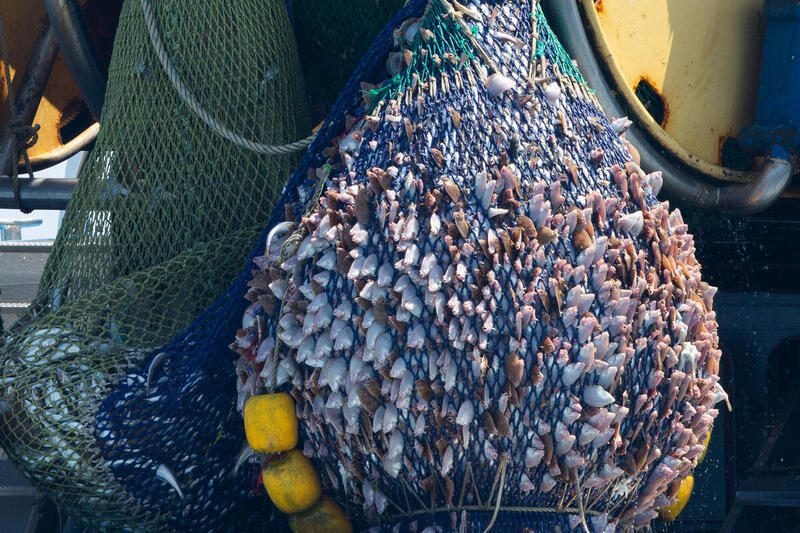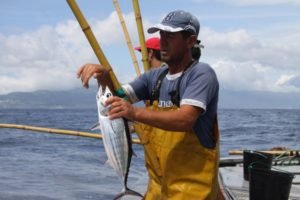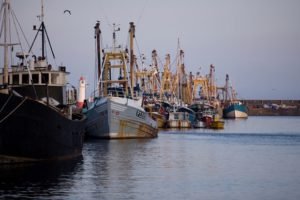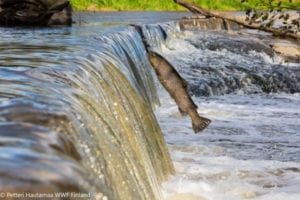Main image: © Kristian Buus / Greenpeace
Greenpeace, fishers, anglers, charter skippers and fishing businesses have come together to declare a state of emergency in the English Channel and Southern North Sea.
Fishing groups from Eastbourne, Hastings, Thanet, Newhaven and Lowestoft, along with the New Under Ten Fishermen’s Association (NUTFA), New Economics Foundation, Angling Trust, fishing businesses Sole of Discretion and Pesky Fish and Greenpeace, have signed a joint statement calling for the UK government to take urgent measures to protect fishing communities and our oceans.
These measures include permanent bans for supertrawlers, bottom trawlers and fly-shooters in all marine protected areas more than 12 nautical miles from the coast in the English Channel, and a ban on pelagic trawlers over 55m and fly-shooters in the entire English Channel and Southern North Sea, on the grounds of the precautionary objective in the Fisheries Act.
‘It’s really quite simple, the small scale coastal fleet that the government has sworn to protect is now forced to watch their present and future livelihoods being destroyed in front of their eyes, firstly by the huge fleet of powerful EU owned fly-shooters that inexplicably have had all catch limits removed for their target species, and secondly, by massive EU midwater trawlers reducing the resilience of stocks in the channel to the impact of climate change whilst threatening dolphin and porpoise populations. Tragically, it appears to be only Greenpeace that has been willing to lend its political and practical weight in defence of our coastal fishermen and communities.’
JERRY PERCY
Director of the New Under 10s Fishermen’s Association
Supertrawlers in UK waters
Fishers along the south and east coasts have had their livelihoods devastated after years of unchecked industrial fishing by pulse trawlers, supertrawlers and fly-shooters.
This has severely depleted fish populations, particularly in inshore waters, leaving some local fishers with nothing left to catch. Less than one-third of key UK fish populations are in a healthy state.
Supertrawlers, all of which are EU owned, spend thousands of hours fishing in UK waters annually, including in marine protected areas.
Supertrawler fishing times in UK marine protected areas increased by 1000% between 2017 and 2020.
Industrial fly-shooters began focusing operations on UK waters off the south and east coast following the electric pulse trawling ban. Fly-shooting is a highly efficient industrial fishing method with immense catching capacity, which poses a threat to fish populations and the seabed.
 Play Video about This Rock Might Just Save The World
Play Video about This Rock Might Just Save The World Play Video about Play 2 hours of rock
Play Video about Play 2 hours of rock Play Video about Play 2 hours of brook
Play Video about Play 2 hours of brook Play Video about Play 2 hours of sheep
Play Video about Play 2 hours of sheep















































